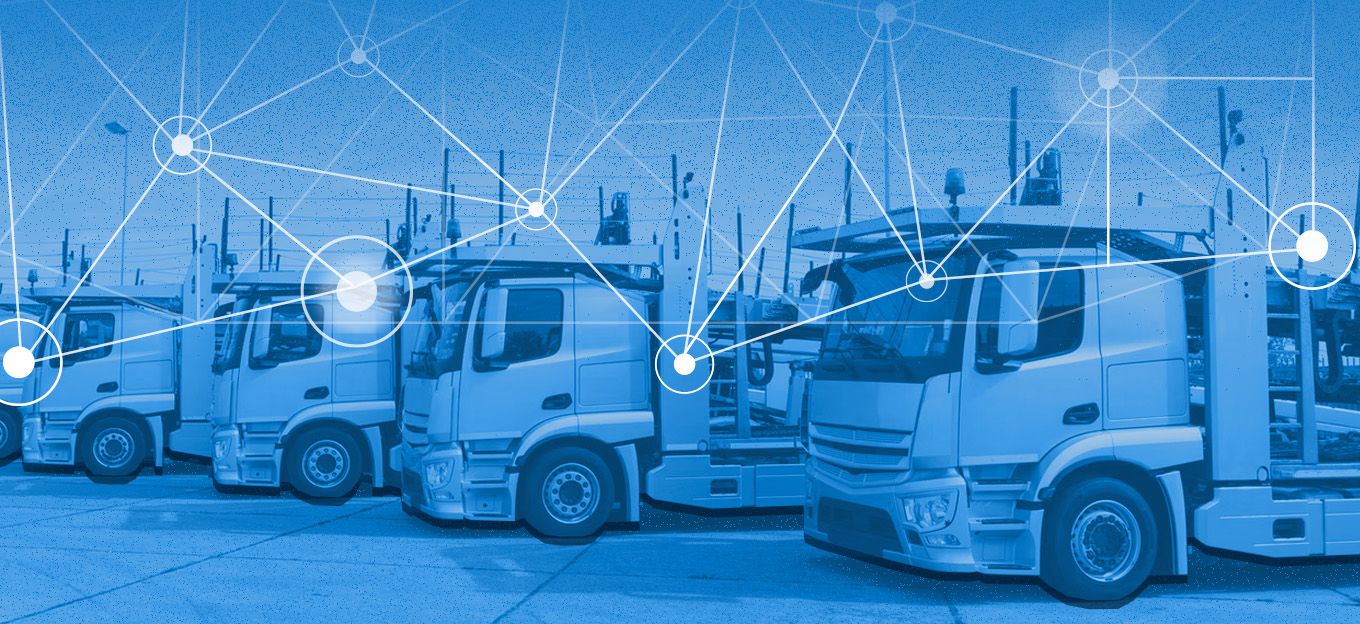What Are the Benefits of Fleet Management Technology?
What Are the Benefits of Fleet Management Technology?
- Last Updated: December 2, 2024
KORE
- Last Updated: December 2, 2024



Fleet management technology has evolved tremendously over the years, transforming the way businesses manage their vehicle fleets. In an era where operational efficiency, cost savings, and improved safety are a top priority, the integration of advanced technologies has become a necessity.
Explore the definition and evolution of fleet management technology, its core components, the immense benefits, technological advancements, and future trends on the rise.
What is Fleet Management Technology?
Fleet management technology refers to the integrated systems and tools used to monitor, manage, and optimize the operations of vehicle fleets. With the rapid advancement of IoT and connectivity, it has evolved from simple manual tracking (such as logbooks and physical maps) to sophisticated automated systems that utilize advanced technologies like GPS, telematics, and Artificial Intelligence (AI).
The adoption of these transformative technologies has enabled fleet managers to reach new levels of efficiency, safety, and cost-savings.
Core Components of Fleet Management Technology
Fleet management technology consists of multiple core components, each one designed to add critical information to a company’s fleet strategy. These components and their functions include:
- GPS Tracking: Real-time vehicle location and movement tracking. GPS tracking systems provide live updates on vehicle positions, leading to better route planning and asset management.
- Telematics: This involves comprehensive data collection and analysis from both the vehicles and drivers. Telematics systems collect speed, braking, and engine data, providing insights into vehicle health and driver behavior.
- AI Dash Cams: AI-powered dash cams monitor driver behavior while enhancing safety by providing real-time alerts for risky driving practices.
- Fuel Management Systems: These systems optimize fuel use and reduce costs by monitoring patterns and flagging inefficiencies.
- Maintenance Software: Proactive maintenance scheduling and management are critical in preventing breakdowns and prolonging the lifespan of the vehicle. Utilizing maintenance software allows fleet managers to automate service reminders and keep a pulse on vehicle health.
- Electronic Logging Devices (ELD): ELDs ensure compliance with Hours-of-Service (HOS) regulations by electronically recording driving hours. Automatically tracking drivers' working hours helps maintain legal compliance and reduces manual paperwork.
- Asset Tracking: Beyond just vehicles, asset tracking technology also manages physical assets and inventory. This technology monitors various assets such as equipment usage, location, maintenance needs, and more.
Benefits of Fleet Management Technology
Fleet management technology can result in several benefits for an organization, including:
- Increased Operational Efficiency: Automation, route optimization, and reduced idle times boost fleet operational efficiency.
- Cost Reduction: Lower fuel consumption, reduced maintenance costs from predictive maintenance, and lower operational expenses through data-driven decisions.
- Enhanced Safety and Compliance: Monitoring driver behavior and ensuring adherence to safety protocols and regulatory compliance enhances overall safety.
- Improved Driver Performance: Real-time feedback and training opportunities based on behavior analytics.
- Asset Utilization and Longevity: Managing vehicle life cycles and utilization maximizes asset potential.
- Customer Satisfaction: Efficient operations and real-time updates improve service delivery, in turn leading to higher customer satisfaction.
- Environmental Impact: Better optimized routes and monitoring of fuel consumption contribute to a greater reduction in the carbon footprint promoting prolonged environmental sustainability
Advanced Fleet Management Technologies to Implement
With the constant evolution of technology comes new, innovative tools that can add to the power of fleet management. The Internet of Things (IoT), for example, allows for increased data collection and enhanced connectivity for vehicles and equipment, enabling more accurate insights into fleet operations.
Additionally, a more recent, yet quickly growing technology penetrating fleet management is the autonomous vehicle. Integrating the technological advancements of self-driving vehicles into fleet operations represents the future of fleet management, promising increased efficiency, safety, and cost savings.
Choosing the Right Fleet Management Technology
So what fleet management technology is best for your company? How do you know what to look for? When selecting fleet management technology there are a few key features to consider:
- Customizable alerts
- Real-time tracking
- Fuel and maintenance management
- Safety analytic
- Integration capabilities
If you are in the consideration stage of implementing this technology, be sure to also contemplate the cost, scalability, user-friendliness, and support services offered to you.
The Future of Fleet Management Technology
As for the trends that may impact fleet management, it is safe to say trends and predictions indicate an increased adoption of AI, IoT, and autonomous vehicles. The impact of 5G and advanced connectivity will continue to enhance fleet management by providing faster data transfer and more reliable connections.
While integrating any new technology poses challenges, the opportunities for innovation and efficiency in this instance far out way the challenges that may arise.
Enhanced Visibility and Real-Time Tracking with Fleet Management Technology
This technology offers great benefits to the logistics and transportation industry if leveraged, and it has shown to be imperative to a company’s fleet strategy. Businesses that adopt and invest in advanced fleet management solutions will stay ahead of the competition, while continuing to operate efficiently in this increasingly digital world.
The Most Comprehensive IoT Newsletter for Enterprises
Showcasing the highest-quality content, resources, news, and insights from the world of the Internet of Things. Subscribe to remain informed and up-to-date.
New Podcast Episode

Navigating the Future of Embedded Computing
Related Articles





